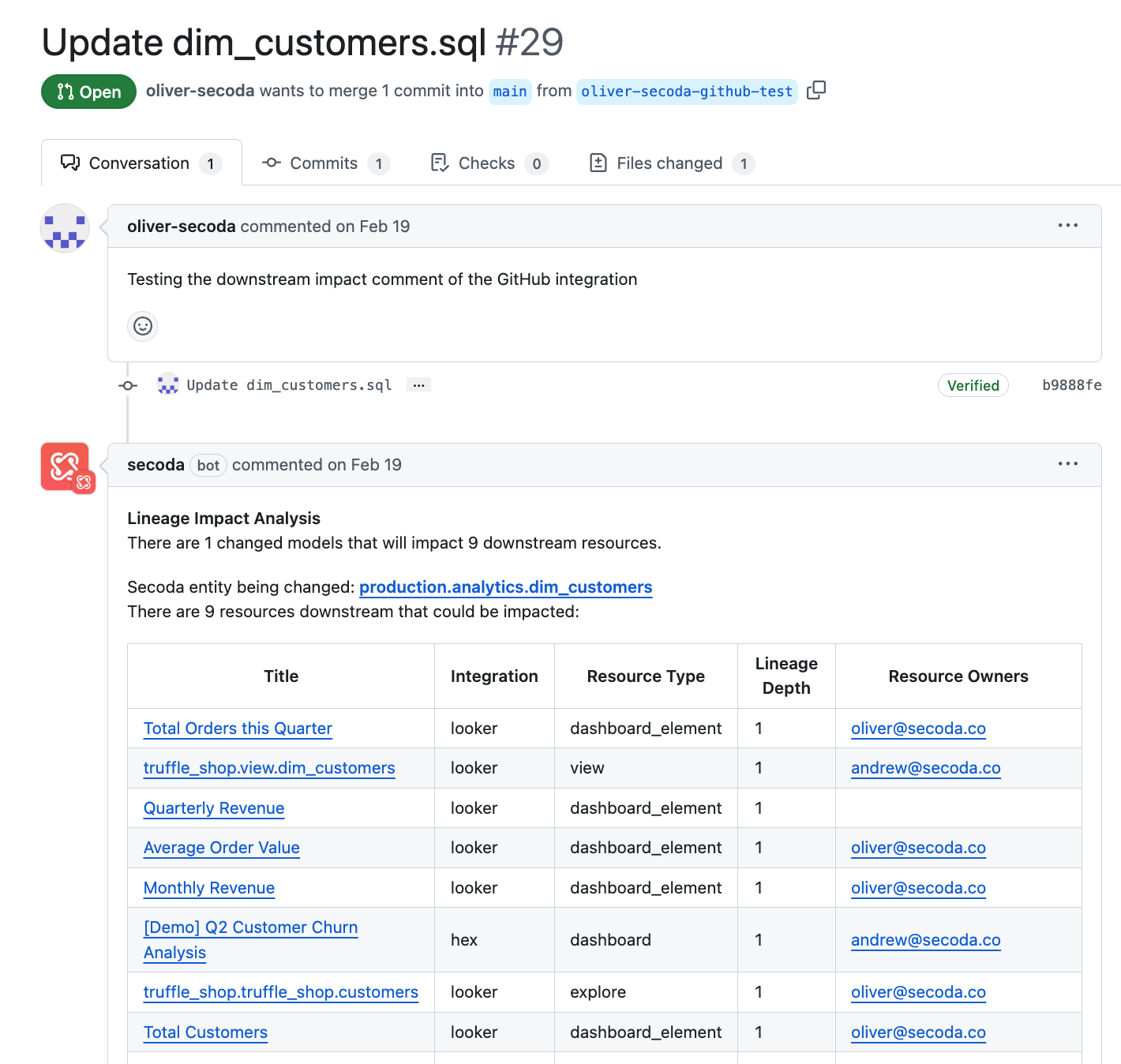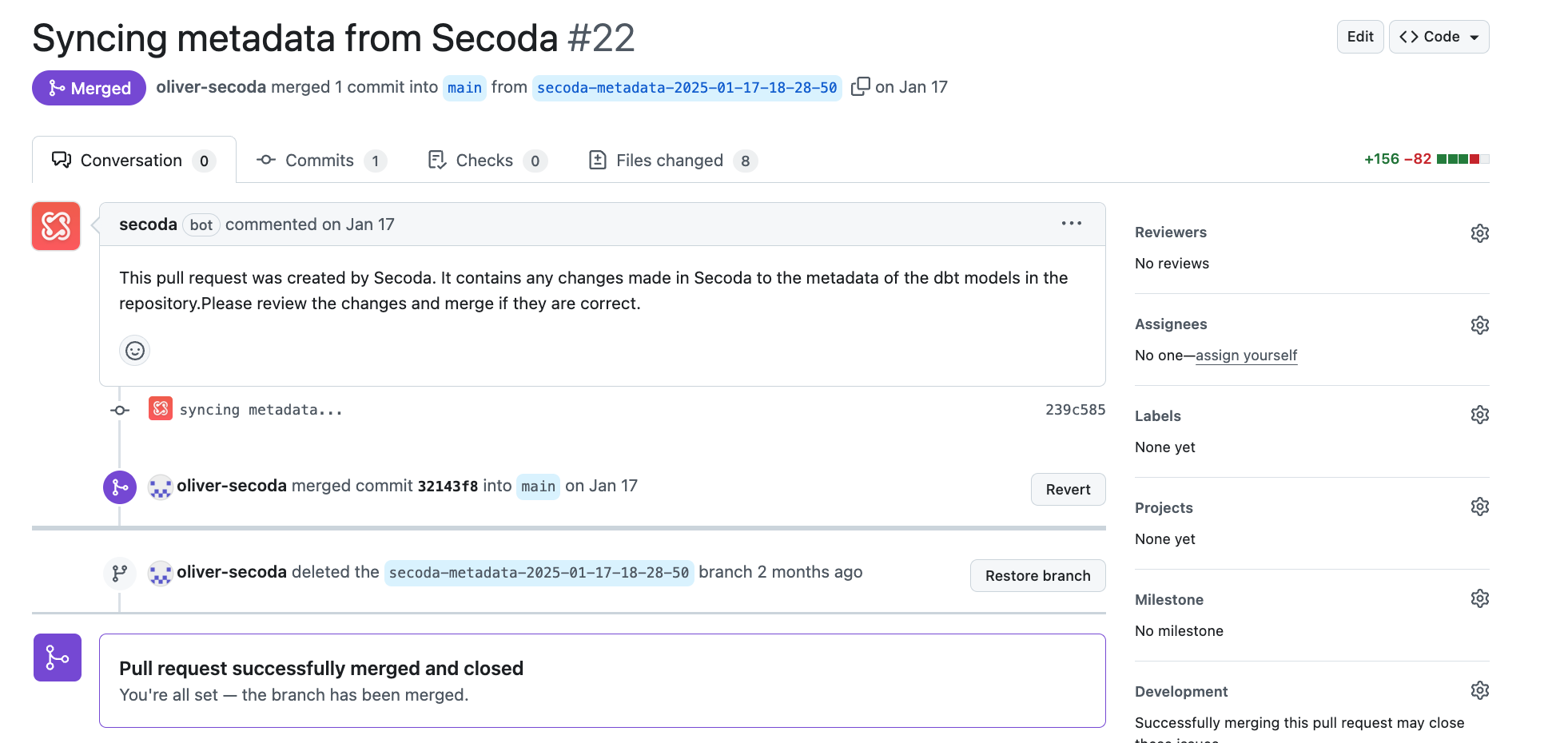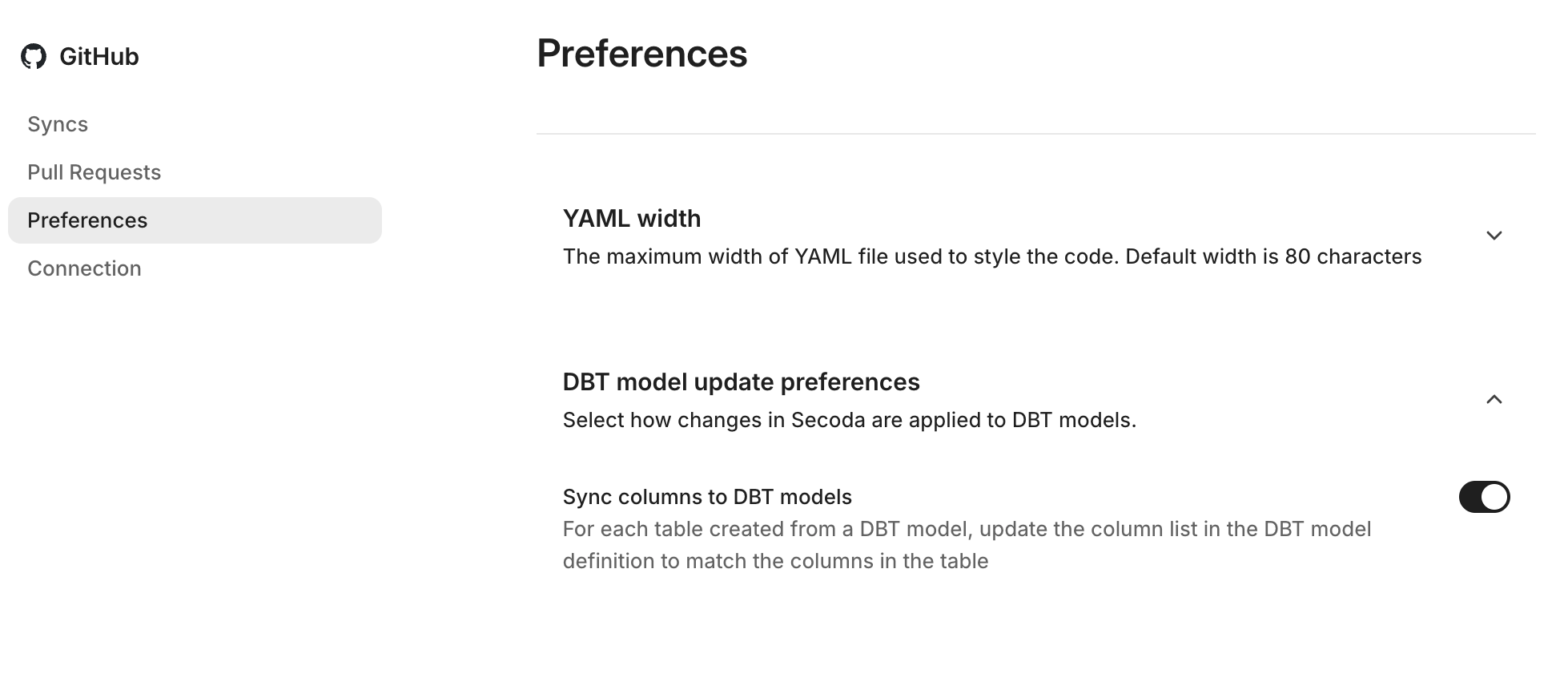GitHub
An overview of the GitHub extension with Secoda
Getting Started with GitHub
GitHub is a supplementary integration that track impact of potential changes and notifies the relevant people. Before connecting GitHub, ensure you have a dbt integration already set up in Secoda.
Connect Github to Secoda
In the Secoda App, select ‘Add Extensions’ in Workspace Settings > Extensions.
Search for and select GitHub.
Click 'Connect with OAuth' and follow the login steps, if needed.
Select the location you want to install, either personal or organization.
Select 'Only select repositories', and use the dropdown to select the specific repository associated with the dbt integration.
Click install.
After Connecting to Secoda
Once the connection is setup, Secoda will check any new pull requests opened in that repository for entities that exist within your workspace. If any deletions are present on the entities, a comment will be written on the pull request of the affected entities, and all immediate downstream entities. An email with the same information will be sent out to all owners of affected entities as well.

Sync metadata back to dbt
Run a metadata sync to update your dbt resources with the info your have changed in Secoda. When a sync is run, Secoda will update dbt metadata files that relate to Secoda resources in your workspace and create a new pull request in your repositories for you to review before merging. The following metadata will be updated from Secoda:
descriptions
tags
owners
column descriptions

DBT model update preferences
This setting determines whether Secoda should automatically sync column-level metadata — such as column names, descriptions, and tags — from your tables in Secoda back to your dbt model .yml files in GitHub.
When the Sync columns to DBT models setting is turned on:
Secoda will update and add column definitions in your dbt
.ymlfiles to reflect what’s defined in Secoda.If a column does not already exist in the dbt model file, it will be added (with name and any available metadata).
If a column does exist, its metadata will be updated to match what’s stored in Secoda.
This is useful if you want Secoda to be your source of truth for column-level metadata.

Last updated
Was this helpful?